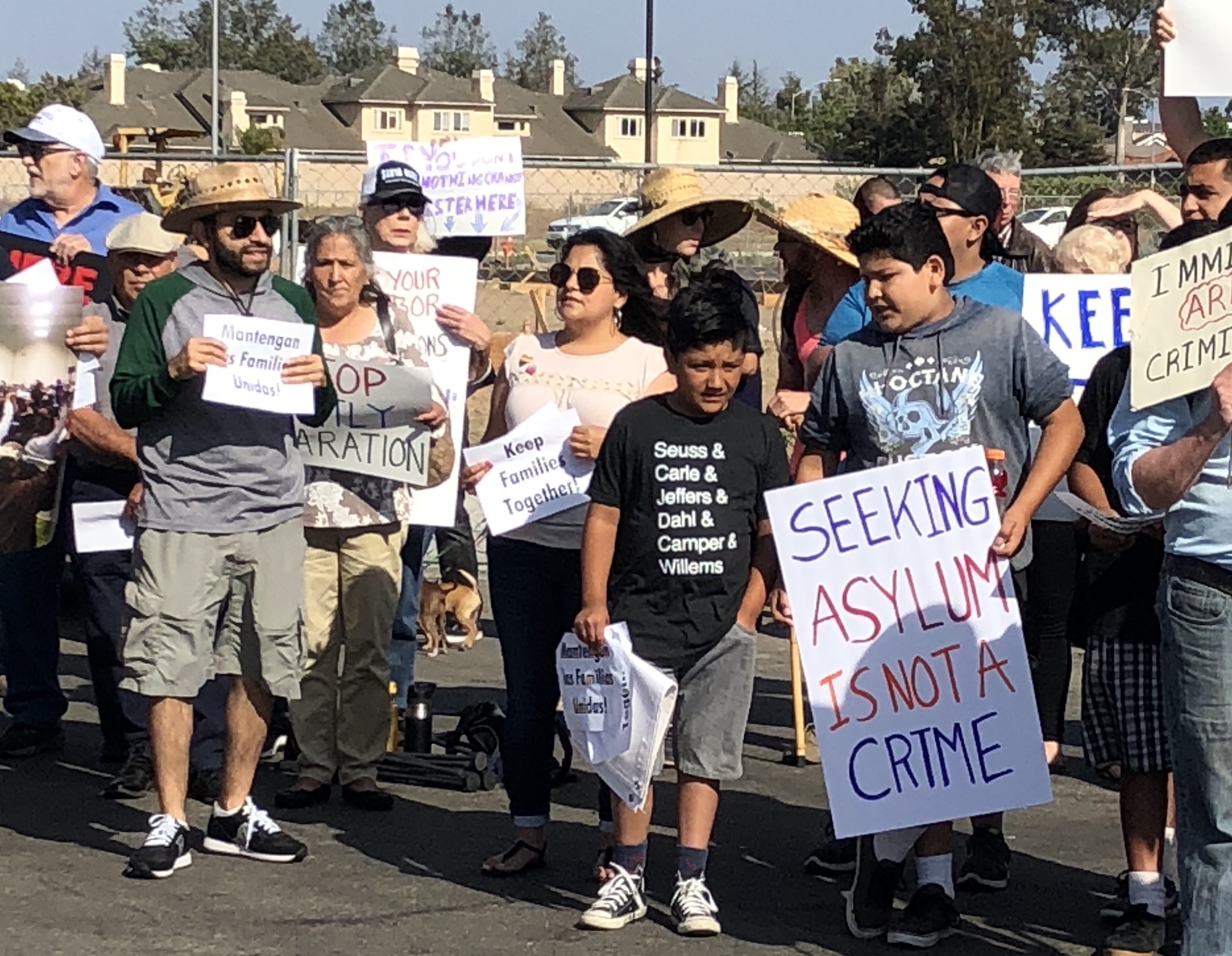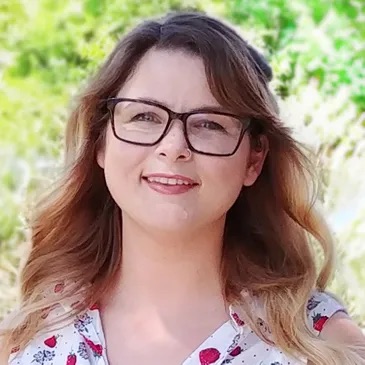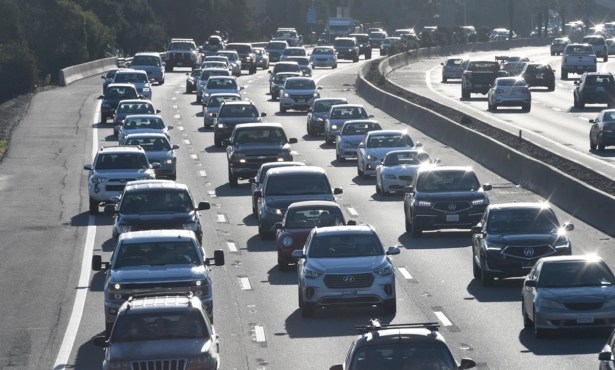‘Love Your Neighbor’ Week: Reflections on the Self
Six Stories of Immigration, Altruism, and Paying It Forward

In honor of the Interfaith Sanctuary Alliance’s fourth annual “Love Your Neighbor” Week, we bring you voices that speak of immigrant experiences, issues, and acceptance. A vigil takes place at De la Guerra Plaza on May 4 at 5:30 p.m.
I Am an Immigrant
I am an immigrant.
I have been an immigrant in two countries.
I have experienced the awkwardness of differentness:
the pain of being bullied and called names
the shame of not understanding or speaking the language
the pain of feeling unwanted
of being on the outside
of being poor.
Then I found words and the power they offered me. I found a voice to articulate my experience
To hopefully touch others who maybe going through similar experiences and offer hope —to say, yes! things can be different.
As a poet, I found words to help me make sense of my immigrant experience. I find solace in the language of other immigrants — I find solidarity in their bold expression of truth.

In our community, I have been recognized as a local hero for my work in the field of mental health both as communications director of the Glendon Association and Psychalive, and co-founder and executive director of the Santa Barbara Response Network. I am an advocate for mental health and a responder to traumatic incidents in our community.
I am honored to be asked to participate in the “Love Your Neighbor Campaign” because who wouldn’t want to love our neighbor, right? Stand in solidarity and care for each other, right? The “Love Your Neighbor Campaign” is an opportunity to give voice and elevate the issues and concerns we have in our diverse community.
We need campaigns of love for our neighbors of every color, for those who don’t look like us, for our unsheltered, our children, our poor, our disabled, our ill, our elderly, our LGBTQ+ friends, our emotionally hurting, our suicidal, our incarcerated …
This campaign challenges us to elevate love, compassion, and tolerance.
I invite you to join me in solidarity and offer love to all our neighbors.
—Jina Carvalho, Executive Director of S.B. Response Network
The Contributions of the Undocumented
The Foodbank of Santa Barbara County is committed to building healthy and hunger-free communities across all areas of the county. That means providing supplemental healthy food to those earning the least amount of money, and it is no surprise that many of those are immigrants — often undocumented immigrants.
Our experience is that they are an incredibly hard-working element of our population, struggling to keep their heads above water and often working multiple jobs. Undocumented people are not eligible for Cal Fresh (food stamps), so they often rely on food pantries to provide additional food to help their families get by.

If you believe that this is a drain on the resources of “documented” people in this nation of immigrants, consider these facts about undocumented immigrants in Santa Barbara County:
• They have a direct positive impact on the county’s economy of $3.7B
• They have an additional indirect positive impact on the county’s economy of $2.1B
• They generate $892M in county tax revenue.
Many undocumented workers work on the farms that propel our county into the top one percent of agricultural producing counties in America. The Foodbank’s Farmworker Program provides food and nutrition education to farmworkers across the county — in partnership with Foodshare — Ventura County Food Bank, who do the same there. Even if you are of the persuasion that immigration to America should have stopped after your forefathers arrived, it seems like the smallest of exchanges to provide some food to those who do so much to provide food for all of us in Santa Barbara County.
—Erik Talkin, CEO of Foodbank of Santa Barbara County
Remembering Kindness in Kansas
Our country is built by immigrants who bring diverse perspectives and experiences to their new community. History is full of examples where immigrants contributed to their communities. These significant contributions varied from the arts to science, from railroad construction to politics, from food to technology, and countless more made daily.
I immigrated to this country as a refugee when I was 9 years old, and it is only through the compassion of others that I am the person I am today. These early experiences changed my life, and I chose a career in public service to extend that same care and goodwill I received as an immigrant.
A kind and compassionate family in Junction City, Kansas, sponsored my sister, her family, and me from a Guam refugee camp. We faced many language and cultural barriers during the first few years of living in this country, and we could not have survived without the support of our community.
Patient and empathic teachers and tutors helped me learn to speak English. They gave me a voice. My classmates and our neighbors showed me the American way of doing things, teaching me the unfamiliar customs and traditions. They welcomed me into the community. One specific instance that will always stay with me is when a classmate and their family rescued me after I was stranded while walking to school without snowshoes. The support of these and other individuals helped lessen the struggles I faced as a young immigrant, and their warm welcome helped me to adjust to my new life.

As an adult, I had many opportunities to pay it forward when my husband and I lived in our graduate student housing complex in the Bay Area. Our neighbors were students — families from all over the world and from all walks of life. When we exchanged intentional or random kind acts to one another, we connected as part of a stronger community. I felt a sense of belonging in that apartment complex. Although many of my neighbors did not speak English, we shared the value of standing up together to protect our community garden from being demolished. Our connectedness resulted in us being active in safeguarding the community we had built.
There is strength in diversity. Every time we welcome new immigrant neighbors into our neighborhoods, our community is made the richer for it. There is so much to be learned about different cultures, traditions, and ways of life, and only by being open-minded, kind, and compassionate do we have the opportunity to grow as people and as a community. This approach can help break down barriers and foster greater appreciation and respect for the diversity that every member of the community brings.
As a professional in our health care system, I continue my commitment to support our immigrant neighbors. Studies continue to report health disparities persisting along lines of race and ethnicity, immigration status, and income. We need to partner with each other to create systems, policies, and practices that give everyone in our communities the opportunity to thrive. As the chief health equity officer at CenCal Health, I am particularly glad that our team is committed to advancing quality and health equity for all, including access to high quality health-care services, and partnering with others to address social drivers of health so we can reduce health disparities in our communities.
During these tenuous times, it is imperative that we support each other, rather than allowing differences to divide our communities. We can begin by loving our immigrant neighbors. Without acts of kindness and compassion, these valuable members of our community will be further isolated politically, socially, and even economically. Our actions have ripple effects, so it is important to set an example for others to follow. Being kind to those who are different from us will result in a culture of inclusivity for all.
Being kind to our immigrant neighbors is a personal value of mine, one that guides my actions in my personal and professional life. Speaking from experience, little acts of kindness to everyone, but especially to our immigrant neighbors, can result in a positive impact on individuals, communities, and the country. And it is the right thing to do.
—Van Do-Reynoso, MPH, PhD, Chief Customer Service Experience Officer & Chief Health Equity, Officer, CenCal
We Are Inextricably Connected
It seems a bit ironic to be writing a letter on why I believe it’s important to love our immigrant neighbors. The irony you might ask? You see, in some ways, I am that neighbor. I am the child of your immigrant neighbors. The immigrant neighbor is my family; I am an extension of them.
I write these words from the perspective and experiences of the Mexican immigrant.
We, your immigrant neighbors, have cleaned your hospitals, schools, homes, the offices you use and the hotels you stay in.
We have pruned, cut, and maintained your gardens.
We have cooked and served your food and cleaned and prepped the restaurants you visit.
We have rung up your purchases and bagged your items at stores you frequent.
We have served and helped care for your elderly in assisted living and nursing home facilities and your loved ones in hospitals.
We have cared for and watched over your children, often spending more time with them than our own.
We have picked up your garbage and built your homes.
We have been cheated, abused and humiliated.
We have felt like outsiders and outliers, often yearning for the prosperity, resources, and wealth we feel will never be within our reach.
We came here willingly and knowing that life would be hard.
We knew that pain, suffering, and sacrifice would be a part of the deal.
Despite this, or should I say in spite of this, we are happy to be here in pursuit of happiness and the possibility of a better life for our families.
We have also been helped and loved by you.

I am your immigrant neighbor, let me introduce myself:
My name is Maria “Mari” Hernandez. Hernandez by marriage and Guerrero by birth. My parents were born and raised in Jalisco, Mexico, and immigrated to the U.S. in the early 1960s. I count it a blessing every day to have had the privilege of being born and raised in Santa Barbara. In 1993, after attending S.B. City College, I moved to Los Angeles to finish my education. I obtained my BA from Loyola Marymount and a master’s in social work from UCLA. I work as a psychotherapist in private practice, and I am continually working to build a successful social enterprise. I also serve as volunteer director of a small nonprofit called Vida Center, which my partner and I started in the aftermath of our adopted son’s suicide in 2018.
For 26 years, in various roles as a social worker and across three different counties (Los Angeles, Ventura, and Santa Barbara), I have had the privilege of helping others improve their well-being and their lives. My siblings have served and helped others for most of their lives as well, amongst us two physicians, an accountant, a firefighter, a health inspector, a retired school secretary and bookkeeper. However, what we have been able to accomplish, would not have been possible if our parents, the immigrant neighbors of yesteryear, had not received love and support in the form of kindness, charity, inclusion, support, and resources, to name a few of the ways.
The people and organizations who demonstrated love in action and helped my parents, not only helped them but helped us, their children as well. I remember many of these instances of receiving help, some of these memories are more than 40 years old. They shaped our lives and the lives of our children for the better, they have allowed us to pay it forward perhaps even to you or your children. I believe to love and stand in solidarity with our immigrant neighbors is essential for the well-being of our communities. We are inextricably connected, and, in some way, we are each other’s future.
—Mari Hernandez, LCSW, Cofounder, Vida Center
Telling Our Unique Stories
It’s early morning, and our studio begins to fill with artists. In Spanish, English, American Sign Language, and a sort of unspoken communication understood by those who listen, stories of the weekend, family, and friends begin to unfurl. Canvases come out of their storage racks, and clay is pulled off the shelf. Drawings are unearthed from the depth of an old and worn flat file. Each artist brings a vibrant and raw vision of their world, and each works through their art to communicate that vision to the broader community.

In this place, giving people the time and space to tell their stories is essential. The same can be said for how our community must hold space for immigrant voices and keep an empathic ear to the ground. Without the experiences, cultures, struggles, and successes of immigrants, our community would be forever wanting — tucked away in a drawer, waiting for inspiration to strike.
When we recognize immigrants as a vital piece in the puzzle of our neighborhood, we’re able to see it with more brilliance and substance. One where the hopes and dreams of everyone who lives in this place are validated and supported, regardless of where they started out. Where each person brings some unique experience to the table that betters the lives of those around them. Seeking to understand and lift the experiences of immigrants in our society is what allows us to flourish together, in strength and unity. By looking into the margins and valuing those who may be found there, we transform the unfinished sketch of our neighborhood into one with vibrant color, texture, emotion, and depth.
—Kelly Cottrell, Program Manager, Slingshot, Alpha Art Studio
The Richness of Community
It matters to stand with our immigrant neighbors because unless you are native to this land, you are all immigrants. Many of us have been immigrants at some point, including me. I moved here from Mexico with my parents when I was 9 years old.
Being an immigrant in the world today is scary. Many of us live or have lived day-to-day fearing ICE, dealing with xenophobia, having limited options of work or services, and dealing with cruel judgment from people who have not given us the time of day to know us but rather judge us by how we got here.
Immigrants make our community our community. It is so important for them to feel included and like they belong to this community as equally as the rest of us. The more diversity we have in our community, the more beautiful we are, the richer it makes our culture, the more we learn from each other.
—Ana Maya, Program Director, Family Resource Center, Isla Vista Youth Projects





You must be logged in to post a comment.